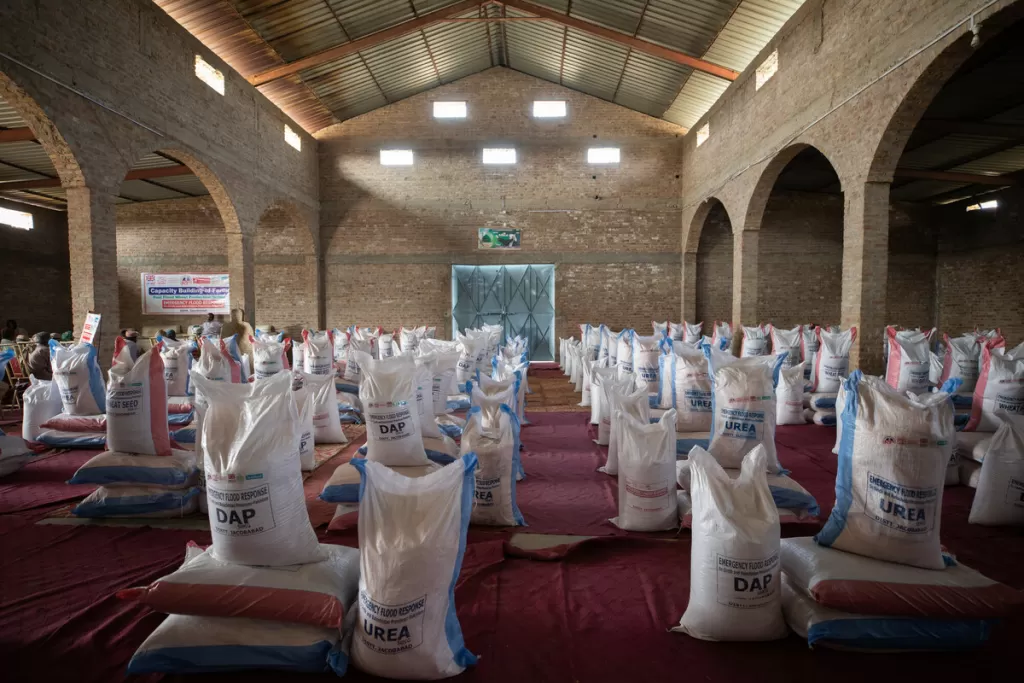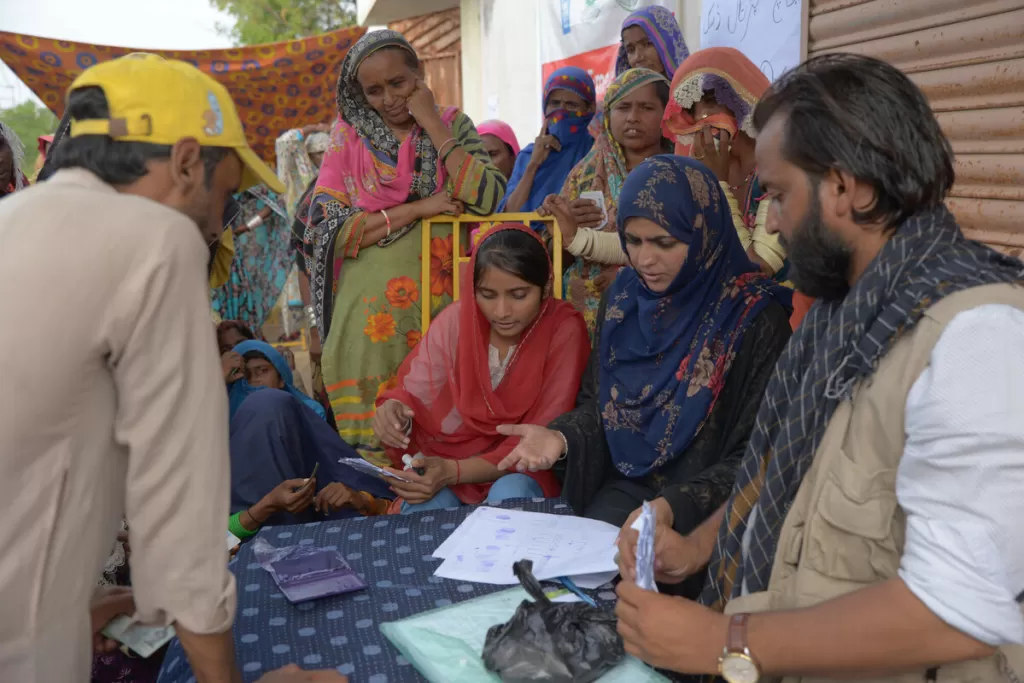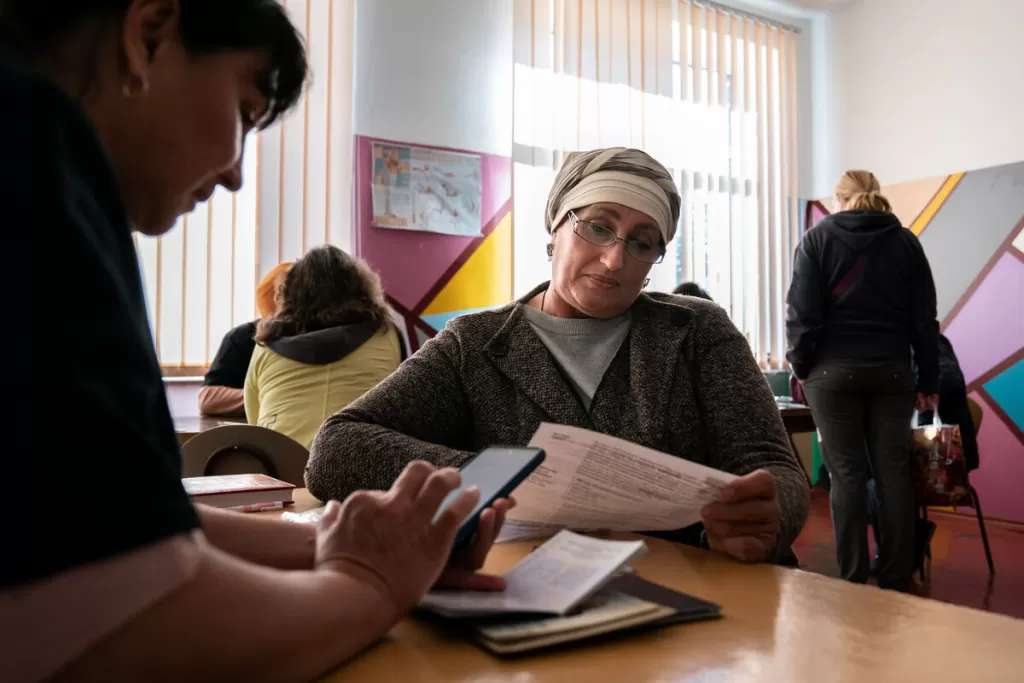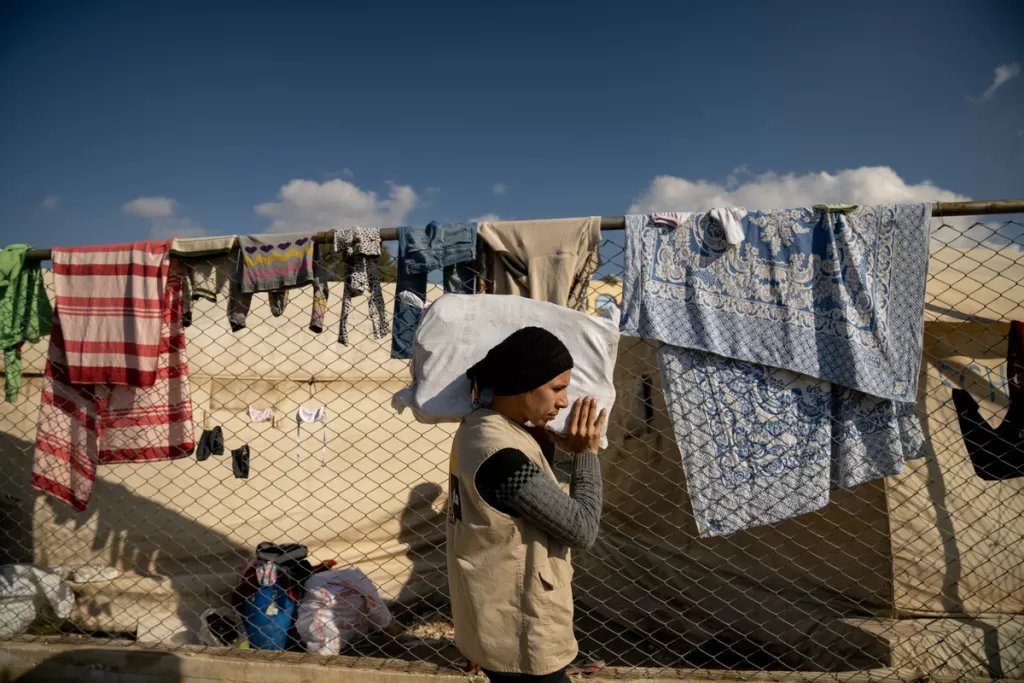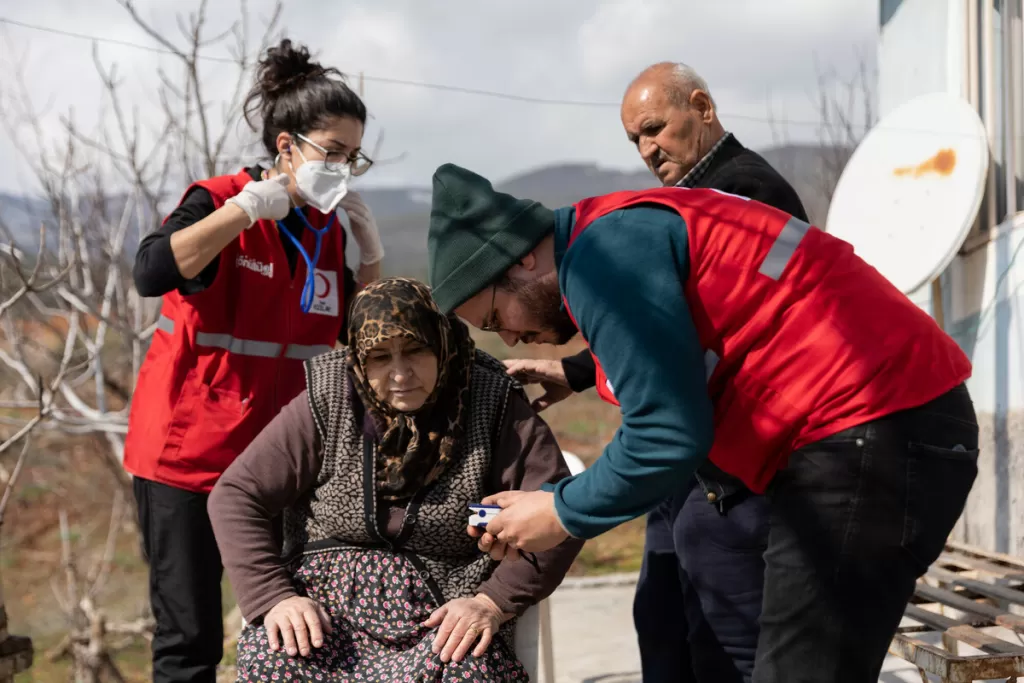In 2022 a change of military strategy in Ukraine saw energy infrastructure hit by sustained missile strikes. The knocking out of electricity and heating ahead of the freezing winter dramatically worsened the humanitarian situation. In response, member charities and their local partners quickly adapted their winter plans and these changes proved vital to helping people survive a difficult, cold winter.
To coordinate the work of different aid agencies and avoid duplication, the UN-organised cluster system, which all DEC member charities participate in, brings organisations working in different areas-for example health, water, and shelter-together to share responsibility and learn from each other’s work.
This means that no single agency is responsible for an entire aspect of the response, making it more robust. Throughout the response, each cluster group meets regularly to discuss progress, issues, and make necessary changes.
Getting aid into disaster-affected areas
“Essentially, it’s the same way any supply chain works, using transportation and infrastructure to get goods and services where they need to be. Where things differ from fruit and veg getting to your local supermarket is that transportation of goods is often in hard-to-access areas,” explains Ed.
Sometimes aid needs to be transported through areas of conflict or remote areas that are cut off by a disaster. In these cases, charities work on restoring infrastructure or find other ways of getting urgent help to people such as by helicopter or even trains or donkeys in mountainous areas.
Ed explains other bureaucratic hurdles can create challenges when transporting goods: “For example in northwest Syria, where many of our charities work, you have a patchwork of different armed groups in control of different areas, and that creates issues.
“In these situations, you need to negotiate access with all those different groups. This requires patience but also requires a level of acceptance and trust that has been built up by our members and their partners.”
Gaining acceptance from communities and the relevant authorities is key to successful humanitarian work.
Over the last 10–15 years, DEC charities have been moving away from delivering physical goods. Between 2019 – 2023, 40% of DEC aid spending was allocated to cash programming.
Where markets are still functioning, a more efficient way of getting help to people in need is by giving cash payments or vouchers to those in need. These instalments allow disaster-affected people to meet their basic needs such as food, medicine or clothing.
“Cash is an excellent form of aid because it gives agency to affected communities,” says Ed. "If you distribute food items, the people affected by a crisis don't always have a say in what those food items are. If you give them a cash payment, that gives them agency over what they choose to spend that cash on, based on their needs and priorities.”
Most recently DEC charities have been providing people affected by earthquakes in Turkey and Syria with cash support. Within the first six months of the response, 32% of money spent was on cash support and vouchers.
“It [cash assistance] allows me to but food, nappies and milk for my children,” said Khalil, a single father now raising two young daughters alone following the earthquake.
